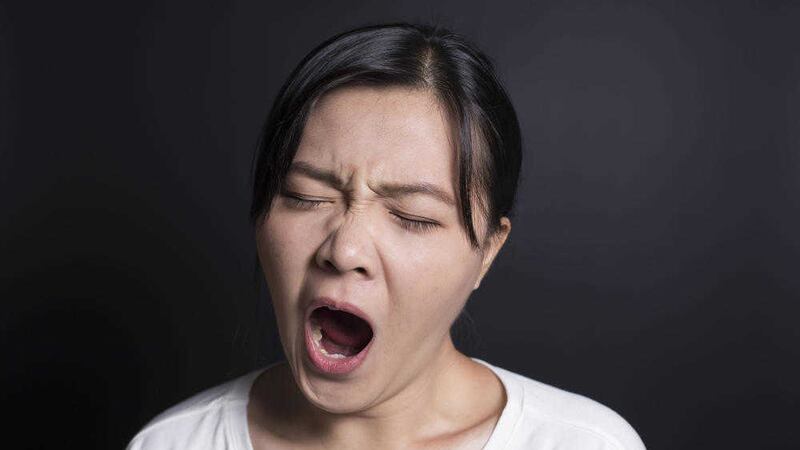WHO isn't tired, right? But – aside from how much sleep you're getting – how can you tell whether those excessive yawns are just a normal, temporary reaction to a busy week, or a sign of something more worrying?
IS SOMETHING MORE SERIOUS GOING ON?
If tiredness is really wearing you down, it's natural to worry there might be something more sinister going on with your health. The vast majority of the time, this won't be the case – however, there are occasions when it might be, and it's likely there will be other symptoms too.
"You know your body better than anyone – if you feel the tiredness you're experiencing is out of the ordinary, it's best to talk to a GP," says Dr Adam Simon, chief medical officer at PushDoctor.co.uk and NHS GP.
Conditions linked to exhaustion include chronic fatigue syndrome, under-active thyroid, anaemia, diabetes and cancer.
"If you're experiencing chronic tiredness over a period of weeks or months, this could indicate the possibility of a more serious problem," Dr Simon adds. "Similarly, if experiencing excessive tiredness in conjunction with other symptoms, like rapid weight loss, yellowing of the skin, digestive and bowel problems or mental health issues like depressive thoughts, consult your GP."
ARE MEDICATIONS MAKING ME TIRED?
"Some prescription medications are known to cause tiredness, such as antidepressants, high blood pressure treatment and statin medication to manage high cholesterol. It's also important to remember that some over-the-counter medicines, such as Co-codamol, Paramol and Night Nurse, are known to cause drowsiness," says Anshu Bhimbat, LloydsPharmacy pharmacist (www.lloydspharmacy.com).
"If you think your tiredness is being caused by medication, speak to your pharmacist, who can advise on avoiding or managing side effects."
IS MY MENTAL HEALTH PLAYING A PART?
Our mental health can play a big part in things like energy levels, alertness and concentration. Stress is a normal part of life, but over time, high levels of stress can wreak havoc with hormones, leading to chronic low mood and energy.
"Tiredness can be the result of low mood, or an accumulation of stresses in life. As your mood improves or the stress reduces, you'll find energy levels return to normal. However, if the fatigue persists and is getting in the way of your normal routine, you should talk to your pharmacist or doctor," suggests Bhimbat.
"They can provide self-help tips to enable you to manage – and hopefully relieve – your tiredness." Anxiety can have similar affects, while depression has very strong links with fatigue and low motivation. If you're concerned, speaking to your GP, or calling the Mind infoline (0300 123 3393), is a good place to start.
DO I HAVE A DEFICIENCY?
We all know diet and nutrition are key factors in exhaustion; however, unless there's an obvious cause – for example, you feel more tired after cutting out an entire food group, like carbs or meat, or if you're simply not consuming enough calories – it's best to get things checked properly.
Low iron and anaemia, a major cause of fatigue, are very common, but nutritionist Sally Wisbey stresses the importance of a proper diagnosis. "Low iron, which can lead to anaemia, is common; teenagers, menstruating [especially if you have heavy periods] or pregnant women, or anyone who's had blood loss tends to be most at risk. But tiredness could also be due to other deficiencies, like low vitamin D, magnesium and B vitamins, which can have similar symptoms. I always say: go and get blood tests done, and see what the results are."
IS MY LIFESTYLE TO BLAME?
Our lifestyles can contribute to tiredness in countless ways. Burning the candle at both ends is an obvious one, and too much alcohol can reduce sleep quality and play havoc with hormones, but it doesn't end there. Being overweight can be a common factor.
"Excess weight can make you feel lethargic, so losing a few of those extra pounds can make you feel more energetic," says Bhimbat. Another big culprit is having a very sedentary lifestyle: spending hour after hour at a desk, and not getting enough regular physical activity, are clear recipes for low energy.
"My advice would be to have little snacks throughout the day to maintain energy levels, introduce a bit of exercise into your daily routine, and make sure you get a good night's sleep every night," she adds.





